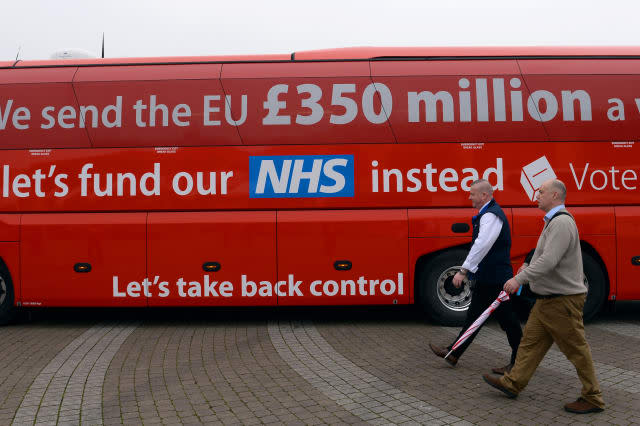The death of trust revealed

The era of trust in experts, politicians and commentators is well and truly over: after a turbulent year, some professions are now considered fundamentally untrustworthy. It will come as no surprise to many that politicians are now the least trusted people in society, and anyone considered either part of the elite, an 'expert' or a reporter doesn't fare too well either.
The findings come from the annual Veracity Index for Mumsnet, which found that politicians are trusted by just 15% of the population: that's an astonishing 6% drop from the same time last year. Government ministers didn't fare much better - and are trusted by 20% of people. Journalists are considered unreliable too, with just 24% of people trusting them, and estate agents were named as the fourth least-trusted profession - at 30%.
See also: Workers 'optimistic' about career prospects after Brexit
See also: Young people 'more gullible than most' when scammers call
See also: Workers 'to be given say on bosses' pay'
The 10 least trusted
Politicians
Government ministers
Journalists
Estate agents
Business leaders
Bankers
Local councillors
Trade union officials
Charity chief executives
Economists
Why not?
Many of those who feature in the bottom ten fall into the category either of 'the elite' or 'experts'.
Politicians and ministers did themselves no favours during the referendum campaign. According to the study, 46% people at the time of the referendum thought that the politicians were mainly lying, while only 19% thought they were mostly telling the truth.
Through further questioning, respondents revealed that they felt politicians had an agenda, and were prepared to say whatever it took to get what they wanted.
Picking experts out of the study, economists fared the worst (trusted by 48% of people), followed by pollsters at 49% and lawyers at 52%. All of them were considered less trustworthy than 'The ordinary man or woman in the street'.
It's easy to understand why we have lost faith, because their best guesses have so often been wrong in 2016. Of course this is an occupational hazard in areas where there are so many variables, but it appears that we have lost patience with them getting things so wrong.
The media are also not considered trustworthy. The study spoke to 'remain' voters and 'leave' voters, and both groups of people believed that the media was biased against their point of view.
Given that people don't trust politicians, the media who report on them, or experts, who do they turn to?
Trusted
Many people relied on themselves alone to find the truth. The study found that on the issue of the referendum, most people had made up their mind not just months, but years previously, and tended to rely on their feelings about the issue rather than considering and debating the issues.
Others turned to those closest to them. Some 72% of people said they trusted the views of their family and friends on issues around the referendum. Of course, such is the nature of the way we choose our social circle, that they are likely to reflect very similar opinions to our own, so discussing issues is simply likely to reinforce the position we already held.
Interestingly, with the referendum now in the courts, it will be interesting to see whether it has an impact on the trust we place in judges. At the time of the study, they were the fourth most trusted profession - after nurses, doctors, and teachers. We will have to wait and see whether this faith survives the media onslaught.
The 10 most trusted
Nurses (93%)
Doctors (91%)
Teachers (88%)
Judges (81%)
Scientists (80%)
The Police (71%)
Clergy (69%)
Hairdressers (68%)
Television news readers (67%)
The ordinary man or woman in the street (65%)




